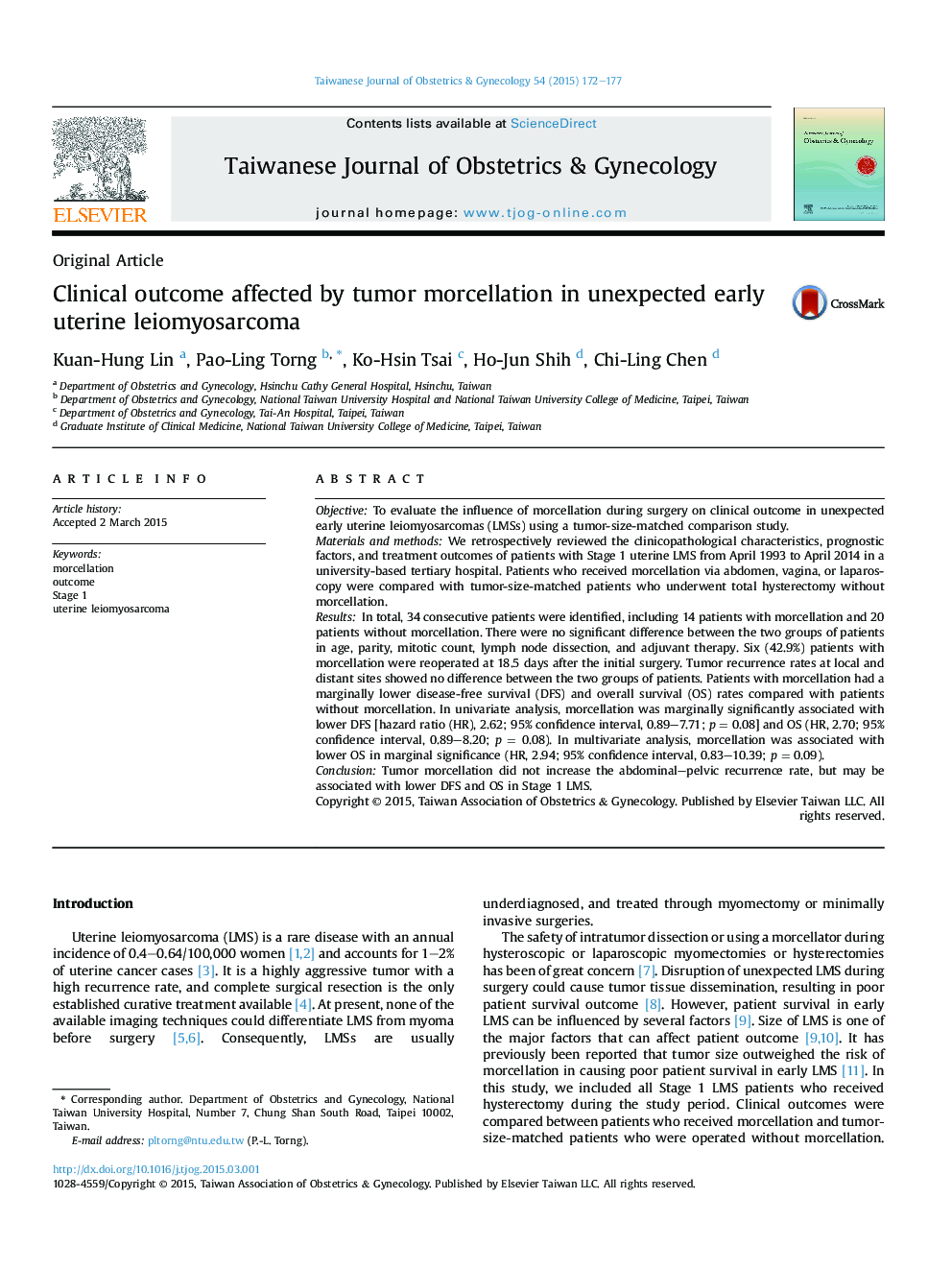| Article ID | Journal | Published Year | Pages | File Type |
|---|---|---|---|---|
| 3975580 | Taiwanese Journal of Obstetrics and Gynecology | 2015 | 6 Pages |
ObjectiveTo evaluate the influence of morcellation during surgery on clinical outcome in unexpected early uterine leiomyosarcomas (LMSs) using a tumor-size-matched comparison study.Materials and methodsWe retrospectively reviewed the clinicopathological characteristics, prognostic factors, and treatment outcomes of patients with Stage 1 uterine LMS from April 1993 to April 2014 in a university-based tertiary hospital. Patients who received morcellation via abdomen, vagina, or laparoscopy were compared with tumor-size-matched patients who underwent total hysterectomy without morcellation.ResultsIn total, 34 consecutive patients were identified, including 14 patients with morcellation and 20 patients without morcellation. There were no significant difference between the two groups of patients in age, parity, mitotic count, lymph node dissection, and adjuvant therapy. Six (42.9%) patients with morcellation were reoperated at 18.5 days after the initial surgery. Tumor recurrence rates at local and distant sites showed no difference between the two groups of patients. Patients with morcellation had a marginally lower disease-free survival (DFS) and overall survival (OS) rates compared with patients without morcellation. In univariate analysis, morcellation was marginally significantly associated with lower DFS [hazard ratio (HR), 2.62; 95% confidence interval, 0.89–7.71; p = 0.08] and OS (HR, 2.70; 95% confidence interval, 0.89–8.20; p = 0.08). In multivariate analysis, morcellation was associated with lower OS in marginal significance (HR, 2.94; 95% confidence interval, 0.83–10.39; p = 0.09).ConclusionTumor morcellation did not increase the abdominal–pelvic recurrence rate, but may be associated with lower DFS and OS in Stage 1 LMS.
